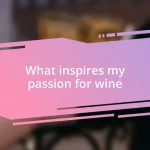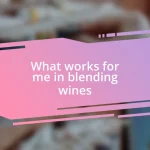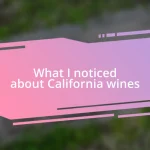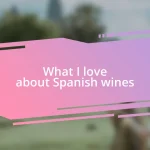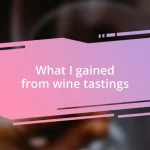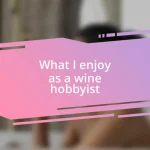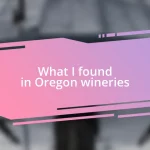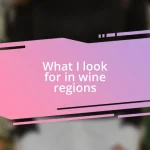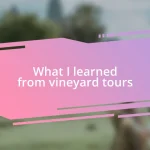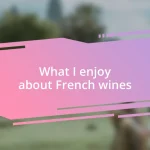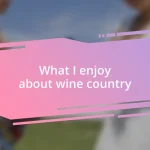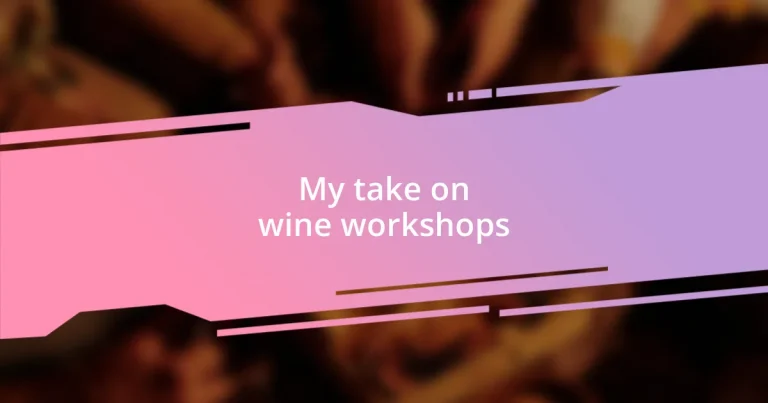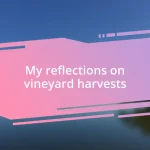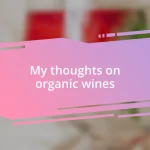Key takeaways:
- Wine workshops enhance participants’ tasting skills, knowledge of wine regions, and culinary pairing abilities, fostering confidence and appreciation for wine.
- Various workshop types, including sensory exploration, masterclasses, and blind tastings, cater to different interests and skill levels, offering unique learning experiences.
- Attending workshops cultivates social connections and a sense of community among wine enthusiasts, enriching the overall experience beyond just tasting.
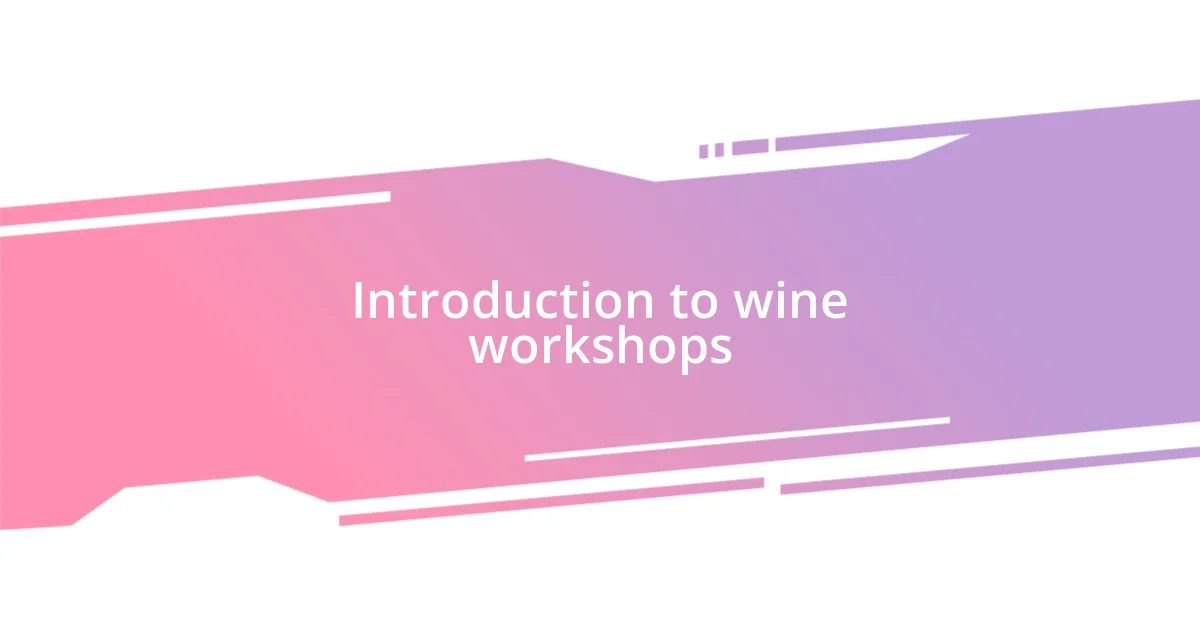
Introduction to wine workshops
Wine workshops have blossomed into popular social gatherings for enthusiasts and novices alike. I remember my first workshop; the excitement in the air was palpable as we uncorked bottles, eager to explore the world of flavors. It’s fascinating how one simple gathering can ignite a passion for wine, turning casual drinkers into curious connoisseurs.
In these workshops, participants dive deep into the art of tasting and pairing. Have you ever wondered how a single sip can transport you to a sun-kissed vineyard? I was amazed by how much I could learn about a wine’s character just by observing its color and aroma. The experience broadens your palate and deepens your appreciation, making each bottle at home feel like a treasure waiting to be discovered.
What truly sets wine workshops apart is the communal atmosphere they foster. Sharing thoughts with fellow wine lovers and exchanging stories about memorable bottles creates a sense of connection that lasts long after the last drop is poured. For me, that’s what makes these events so special; they transform tasting wine into an experience rich with insights, laughter, and new friendships.
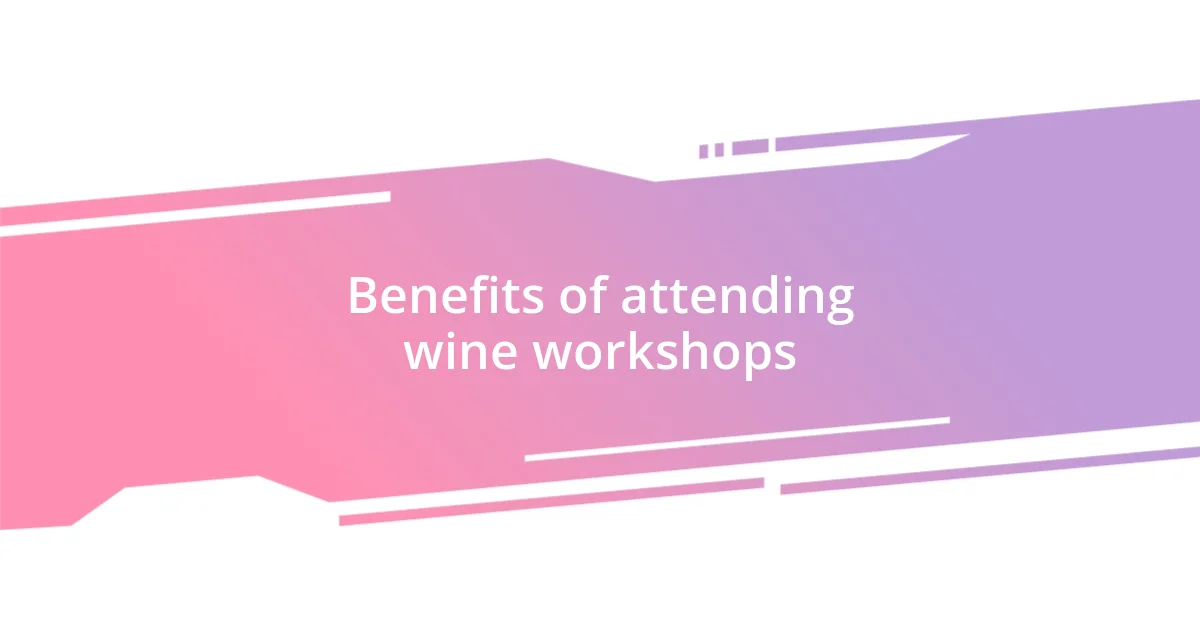
Benefits of attending wine workshops
Attending wine workshops offers a treasure trove of benefits that enrich both your knowledge and enjoyment of wine. For instance, I remember attending a workshop focused on regional wines, and it opened my eyes to the unique terroirs and flavor profiles that vary from one vineyard to another. It’s like traveling without leaving the room; each glass tells a story about its origins, which makes the experience incredibly rewarding.
Here’s a quick rundown of the key benefits:
- Enhanced Tasting Skills: Learn to identify distinct flavors and aromas, honing your ability to evaluate wines more critically.
- Educational Insights: Gain practical knowledge about wine regions, grape varieties, and production methods directly from experts.
- Social Connections: Meet fellow wine enthusiasts who share your interests, fostering friendships through a mutual passion.
- Culinary Pairing: Discover the art of pairing wine with food, elevating your dining experiences.
- Confidence Building: Cultivate self-assurance in selecting and discussing wines, transforming you from a casual drinker to an informed participant in wine culture.
Each workshop adds another layer to your appreciation of wine, making every tasting a more profound and enjoyable adventure.
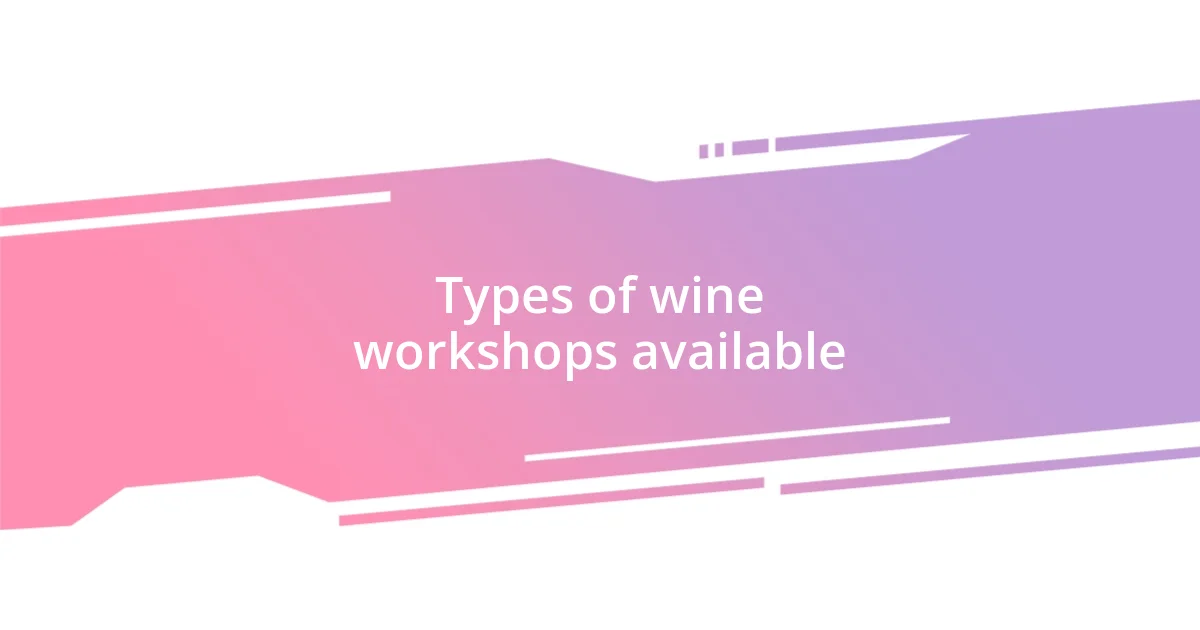
Types of wine workshops available
Wine workshops come in various formats, each offering a unique experience. When I first stumbled into a sensory exploration workshop, I couldn’t believe how much I learned just by focusing on sight and smell before even tasting. It was eye-opening! Such workshops often highlight specific themes, like regional varieties or food pairings, immersing you in the contrasting flavors of different wines.
Another fascinating type I’ve encountered is the masterclass workshop, usually led by experts or sommeliers. These sessions delve into advanced tasting techniques, elevating your understanding to a whole new level. I can still remember the thrill of discussing oak aging and fermentation processes with industry professionals. It felt like I was privy to secrets only insiders knew, which made the experience feel exclusive and enriching.
Each workshop type caters to different interests and skill levels, which really highlights the diversity available. Whether you’re a beginner looking for a relaxed introduction or a seasoned enthusiast seeking advanced knowledge, there’s something for everyone. And believe me, trying a blind tasting workshop can be both fun and challenging – that moment of revelation when you guess a wine right is a thrilling experience!
| Type of Workshop | Description |
|---|---|
| Sensory Exploration | Focuses on the art of tasting through aroma and visual cues. |
| Regional Focus | Explores wines from specific regions, highlighting unique characteristics. |
| Masterclass | Led by industry experts covering advanced techniques and knowledge. |
| Blind Tasting | Encourages participants to identify wines without prior knowledge. |
| Culinary Pairing | Teaches wine pairing with food to elevate dining experiences. |
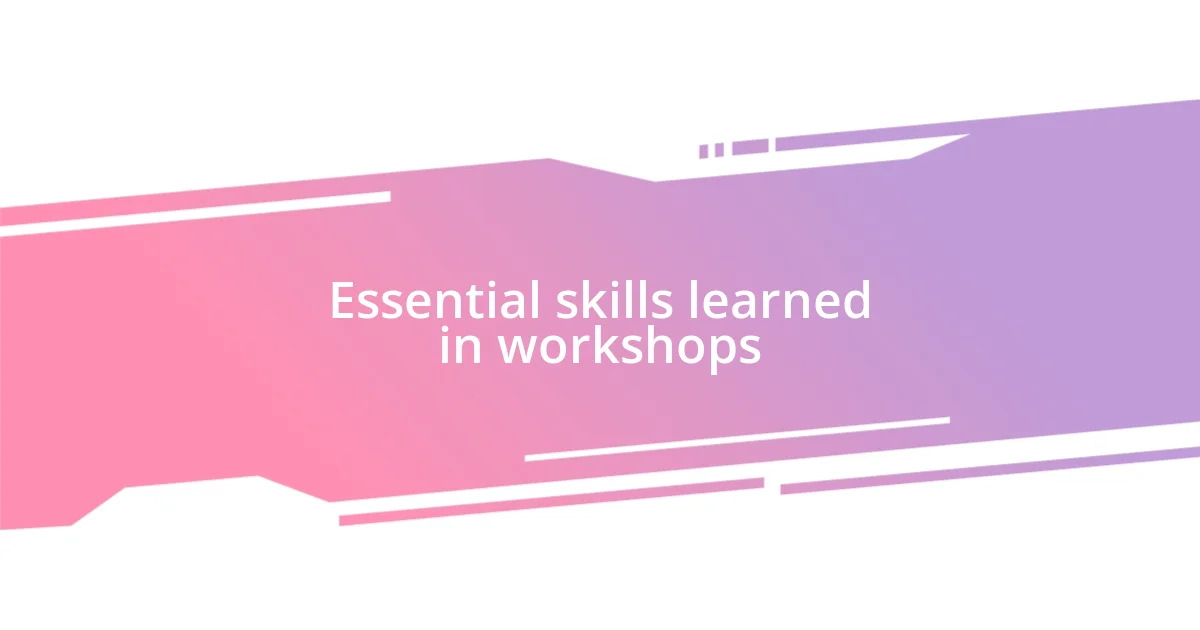
Essential skills learned in workshops
One of the most rewarding skills I’ve honed in wine workshops is my enhanced tasting ability. I can still vividly recall the moment during a workshop where we were asked to identify subtle notes in a glass of Chardonnay. The instructor encouraged us to focus on every sip, and I was amazed by how many distinct flavors emerged, from apple nuances to buttery undertones. Have you ever tried picking apart flavors in wine? It’s a transformative experience that really sharpens your palate.
In addition to tasting, I found that understanding the science behind winemaking has broadened my appreciation. During a workshop on fermentation processes, I had an “aha” moment when the facilitator explained the role of yeast. I realized that this tiny organism plays a monumental role in creating the wine we love. Isn’t it fascinating how something so small can have such a massive impact? This knowledge brought a whole new level of depth to my wine experience.
Social skills also become an unexpected benefit of attending these workshops. I remember chatting with a fellow participant who shared her favorite wine region, and that ignited an inspiring conversation. By exchanging experiences and recommendations, I felt a strong sense of community building. Isn’t it comforting to connect with others who share your passion? It’s a great reminder that wine isn’t just about the drink; it’s about the relationships and stories shaped around it.
